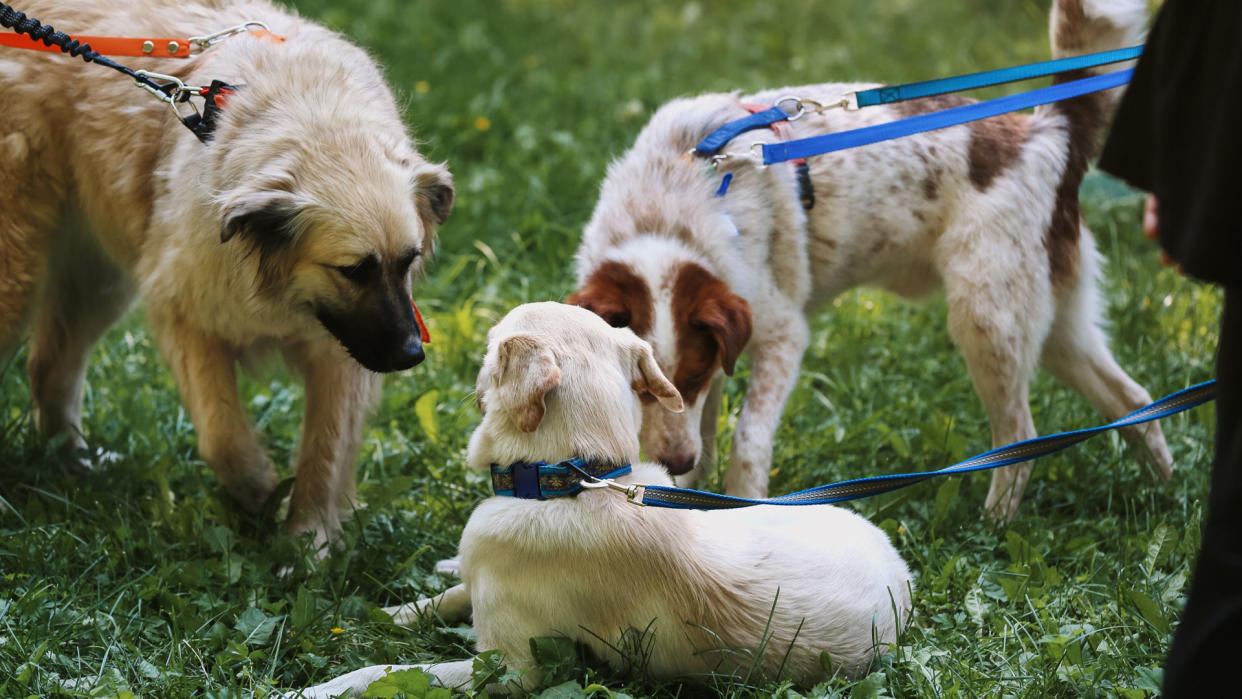Trainer explains the secret to socializing your dog properly – and the common mistakes to avoid

It’s important to socialize your dog when they’re a puppy, as it’ll make life easier and more pleasant for both you and your pup in the long run.
However, there are lots of misconceptions around socialization, and this can lead to young dogs being put into situations where they’re uncomfortable or scared, and they’d much rather be at home playing with one of the best dog toys.
When we think of socializing as humans, we often think of going out and spending time with friends or family members, or meeting new people. However, when it comes to dogs it means something slightly different – but it’s easy to see why some well-meaning dog parents may get confused.
And this is where expert trainer Carolyn Martell, the founder of Good Dog Training, comes in. She’s explained everything to know about socialization, and what not to do, in a recent Instagram post.
A post shared by Good Dog Training (@gooddog.training)
A photo posted by on
Martell begins by outlining a couple of scenarios. In one, somebody drags their scared new puppy over to another dog to say hello, while in another someone holds their scared new puppy so they can’t run off while someone else pets them. “Both think they are socializing their puppy and both are dead wrong,” she says.
Socialization isn’t forcing interactions, and it’s not simply exposure. It refers to exposing your puppy to new things in a positive way, in contrast to what Martell describes as “flooding”.
Flooding is when a dog has no choice but to confront their fears, something that puts them in a state of fight, flight, or freeze. “This is harmful and often backfires, increasing the dog’s level of fear and stress” says Martell. “It can also cause a dog to growl, snap, or bite, as their stress levels rise and they can’t escape, further worsening the problem!”
And this can form negative connections and associations in your pup’s head, heaving the opposite effect as they figure out that meeting new people or new dogs is not a good thing. In fact, poor socialization is one of the top three causes for reactivity in dogs.
Instead, make sure your puppy is comfortable and feels secure when you’re exposing them to new experiences. So, rather than dragging their pup over to meet another dog, the dog parents in the first scenario could have “praised, comforted, and given treats while near the other dog, all while respecting their puppy’s desire to keep a distance.”
Meanwhile, in the second scenario, the dog parent could have advocated for their puppy and praised and rewarded them just for being near an unfamiliar person, and asked the person not to pet them.
Essentially, it’s best to remember not to force your puppy into a scary situation because you think they’ll get over it or they ‘need to learn’. As Martell says, “A puppy who is enjoying the experience will not need to be forced.” And with time and gentle socialization, this will come!
Looking for more? Check out our article from expert trainer, Jan Barley: 'I trained as a dog behaviorist to better understand my reactive dog, and it totally transformed our bond'.
